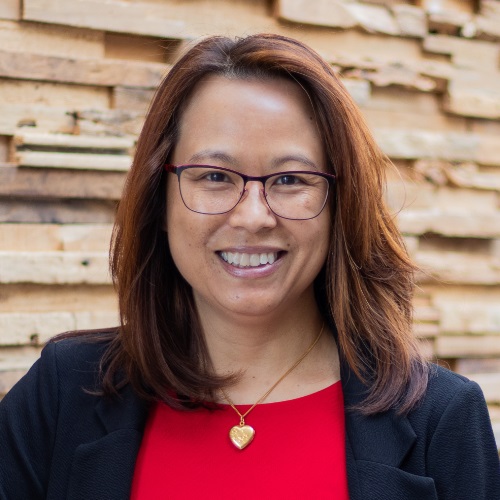Yen Verhoeven, founder of Qi Learning Research Group
Photo provided
If you aren’t a parent yourself, just ask one on Twitter: The new home-schooling normal has not been an easy road for many. For elementary school teachers, adjusting lesson plans to a Zoom screen with a gallery of tiny faces peering back might just be the challenge of their careers.
Although Yen Verhoeven couldn’t have known it before the pandemic hit, her company Qi Learning Research Group was perfectly positioned to help elementary teachers adjust their STEM curricula to distance learning.
Qi Learning is designed to offer vetted digital resources for teachers learning to personalize instruction toward the student, from a distance. Verhoeven launched the company in April 2018 and graduated through the Iowa State University Startup Factory program that year. Qi Learning also received a Bill & Melinda Gates Foundation Grand Challenges grant, which Verhoeven used to launch the company’s first free resources library for teachers who needed assistance leading STEM topics in a way that taught students soft communication, theorizing and research skills, rather than a fact-first approach.
“If I go into a class … and all that teacher does is serve macaroni and cheese, it’s no wonder that you get kids who won’t eat it. Then you’re going to get kids who eat a little bit of it, and then you get kids who just dig in,” Verhoeven said. “When I’m teaching teachers how to teach [online], I provide them with a large variety of resources for people to choose from. … I’m not saying you have to eat from all templates. With resources, you’re providing a buffet, and everybody gets a plate.”
Once distance learning came into effect, Verhoeven and her colleagues moved quickly to transition the company’s STEAM Cafe platform from simply supporting STEM professional development to guiding all elementary teachers who needed to adjust their classes to a distance learning delivery — including offline, for students without broadband access.
STEAM Cafe is helping teachers develop their class time into challenges — such as encouraging students to cook with their parents, or sort laundry into categories and report back to the teacher on the skills they learned.
“We encourage teachers to do nontraditional things. Send a postcard to your students, or send a picture of you,” she said. “The biggest issue with online learning is you’ve got to reestablish your face-to-face connections again.”
To Verhoeven, the pivoting point for her company was the recent Elementary STEM Con held online. More than 4,000 teachers participated and received links to the video series Lesson Planning for Distance Learning, which Verhoeven’s team had quickly developed in March as school districts nationwide began closing classroom doors.
“Finally, people got to see us,” Verhoeven said.
Moving forward, Qi Learning is developing a series of workshops — with titles such as “Disaster-Proof Your Teaching” and the yearlong program “Fierce and Fearless STEAM Teacher” — for instructors and, soon, a summer program for home-schooling families seeking to bolster their student’s STEM skills before returning to classes.
The price for these instructor-focused programs may be a barrier — at least one upcoming program has an expected cost of $3,000 — so Verhoeven is looking for opportunities to sponsor teachers going through the programs.
“I want teachers to be able to prepare for anything,” Verhoeven said. “Teachers can’t pay for this out of pocket. If there are sponsors that are willing to fund them, we would love that. We’d love to open this up to Iowa. … This is for rebel teachers who are unstoppably committed to changing the world.”
